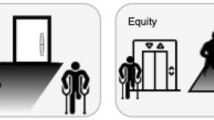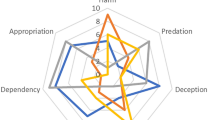Abstract
The paper challenges a minimalist strategy in business ethics that maintains “if it's legal, it's moral.” In hard cases, judges decide legal issues by appealing to moral ideals. Investigation shows that the bedrock concept is fairness. Often judges define fairness in terms of non-coerciveness or equality of bargaining power. The prudent manager must look beyond the legal department to the ethical notion of fairness. Moreover, if the courts were to consistently appeal to non-coerciveness and equality of bargaining power, some practices now considered morally acceptable would be neither moral nor legal.
Similar content being viewed by others
Author information
Authors and Affiliations
Additional information
Norman E. Bowie is Professor of Philosophy and Director of the Center for the Study of Values at the University of Delaware. He is the author of numerous articles on business ethics and social and political philosophy and of Business Ethics, Making Ethical Decisions (ed.), The Tradition of Philosophy (co-ed.), and Ethical Theory and Business (co-ed.).
Rights and permissions
About this article
Cite this article
Bowie, N.E. Fair markets. J Bus Ethics 7, 89–98 (1988). https://doi.org/10.1007/BF00382002
Issue Date:
DOI: https://doi.org/10.1007/BF00382002




